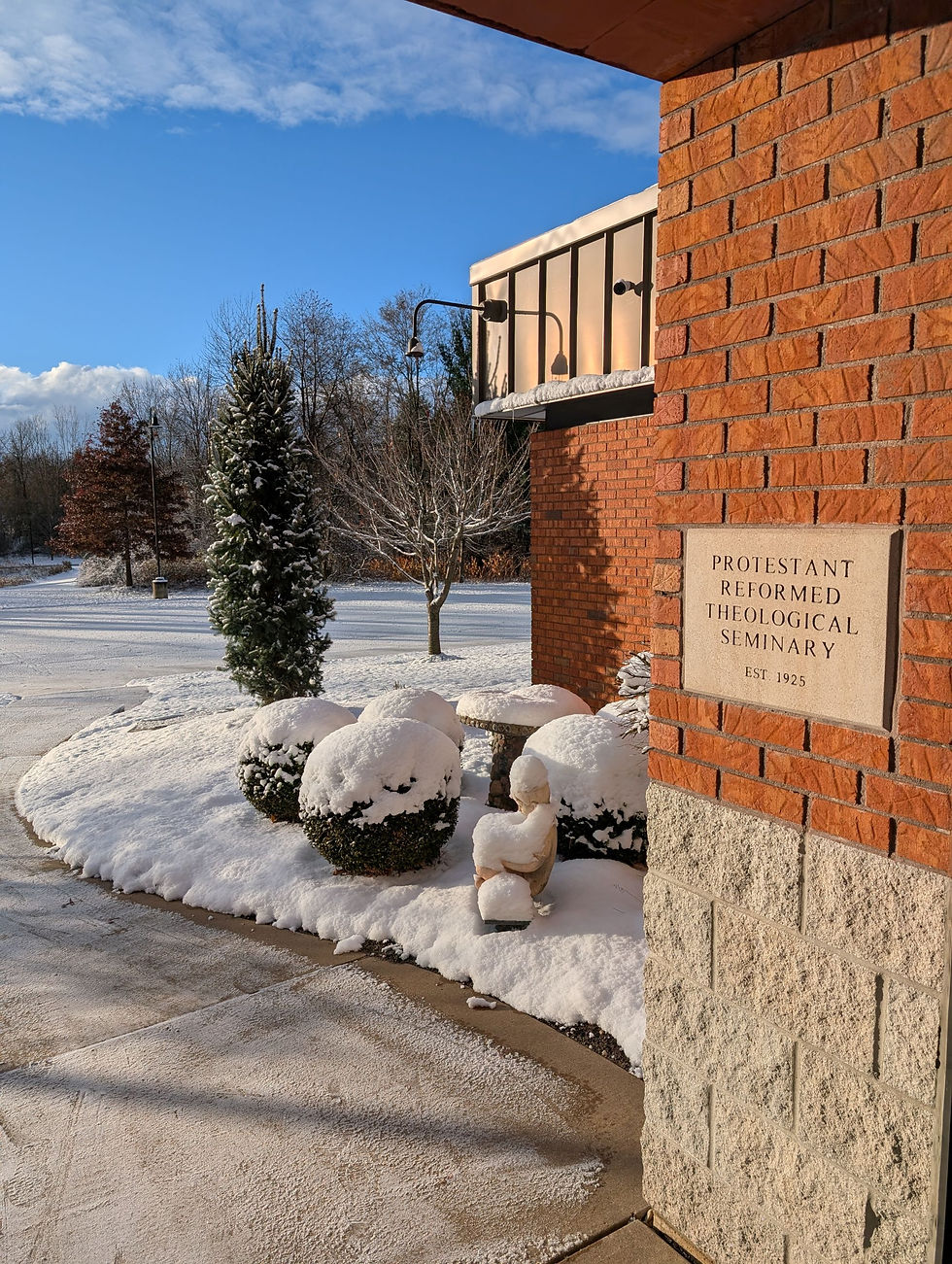The General Offer of the Gospel: Grace to All Who Hear?
- prcseminary1925
- Sep 25, 2025
- 3 min read
Updated: Sep 27, 2025

Last Fall (2024) the faculty of the PRC Seminary held a conference marking the 100th anniversary of the common grace controversy in the Christian Reformed Church (CRC) that led to the expulsion of three of her ministers and the birth of the Protestant Reformed Churches (PRC) in 1925.
This year (2025) the PRC celebrated her 100th anniversary. (June 2-6) by recalling her origins and marking God's great graciousness and faithfulness to her as a denomination from 1925-2025. The most recent issue of the PR Theological Journal contains in written form the speeches given by the PR professors at the Fall 2024 conference.
In this post we call attention to the speech by Prof. R. Cammenga in which he dealt with the "little point" of the first point of the CRC's common grace doctrine adopted in 1924. His speech is titled "The General Offer of the Gospel: Grace?" We quote a portion of it here, encouraging you to read it all as part of the PRC's ardent defense of God's sovereign, particular grace to His people in Jesus Christ.
"Before we turn to an examination of the WMOG, our readers ought to be clear to what we are not objecting.
"We are not taking issue with the teaching that there are non-saving operations of the Holy Spirit. There are such works of the Spirit. Among them is the Spirit’s work in the creation of the world (Gen. 1:2). The Holy Spirit enabled wicked kings to rule in the Old Testament, like wicked king Saul whom the Spirit left in the latter part of his reign (1 Sam. 10:5-13; 11:6; 16:14; 18:12; 28:15). The Holy Spirit hardens sinners in their sin and convicts them of sin. In John 16:8, reference is made to the Holy Spirit’s work of reproving the world of sin, and of righteousness, and of judgment: “And when he [the Comforter] is come, he will reprove the world of sin, and of righteousness, and of judgment.”
"But there are no gracious operations of the Holy Spirit, gracious operations in the hearts of the unregenerate, operations of the Holy Spirit that are the fruit of God’s love for the sinner, be it only in this life. Grace is an aspect of God’s love. If God is gracious to the unregenerate, in some sense and to some degree God loves them. Common grace posits a certain love of God for all people “in common.”
"In the second place, while the PRCA deny that the preaching of the gospel is grace to everyone who hears the gospel, they do not deny that the gospel must be preached promiscuously, and not only to the elect—if that were even possible. The use of the word “promiscuously” is found in the Canons of Dordt, 2.5:
Moreover, the promise of the gospel is that whosoever believeth in Christ crucified shall not perish, but have everlasting life. This promise, together with the command to repent and believe, ought to be declared and published to all nations, and to all persons promiscuously and without distinction, to whom God out of His good pleasure sends the gospel.
"We affirm what the apostle Paul teaches in Acts 17:30, “And the time of this ignorance God winked at; but now commandeth all men everywhere to repent.” The PRCA strive to fulfill the Great Commission, “Go ye into all the world, and preach the gospel to every creature” (Mark 16:15). But the promiscuous call (command) is not an offer of salvation to everyone, driven by a love of God for all humanity and a sincere desire on the part of God to save every human being, at least those human beings who come under the preaching of the gospel. That it is such an offer we deny.
To continue reading more on this issue, use the link provided here.




Comments